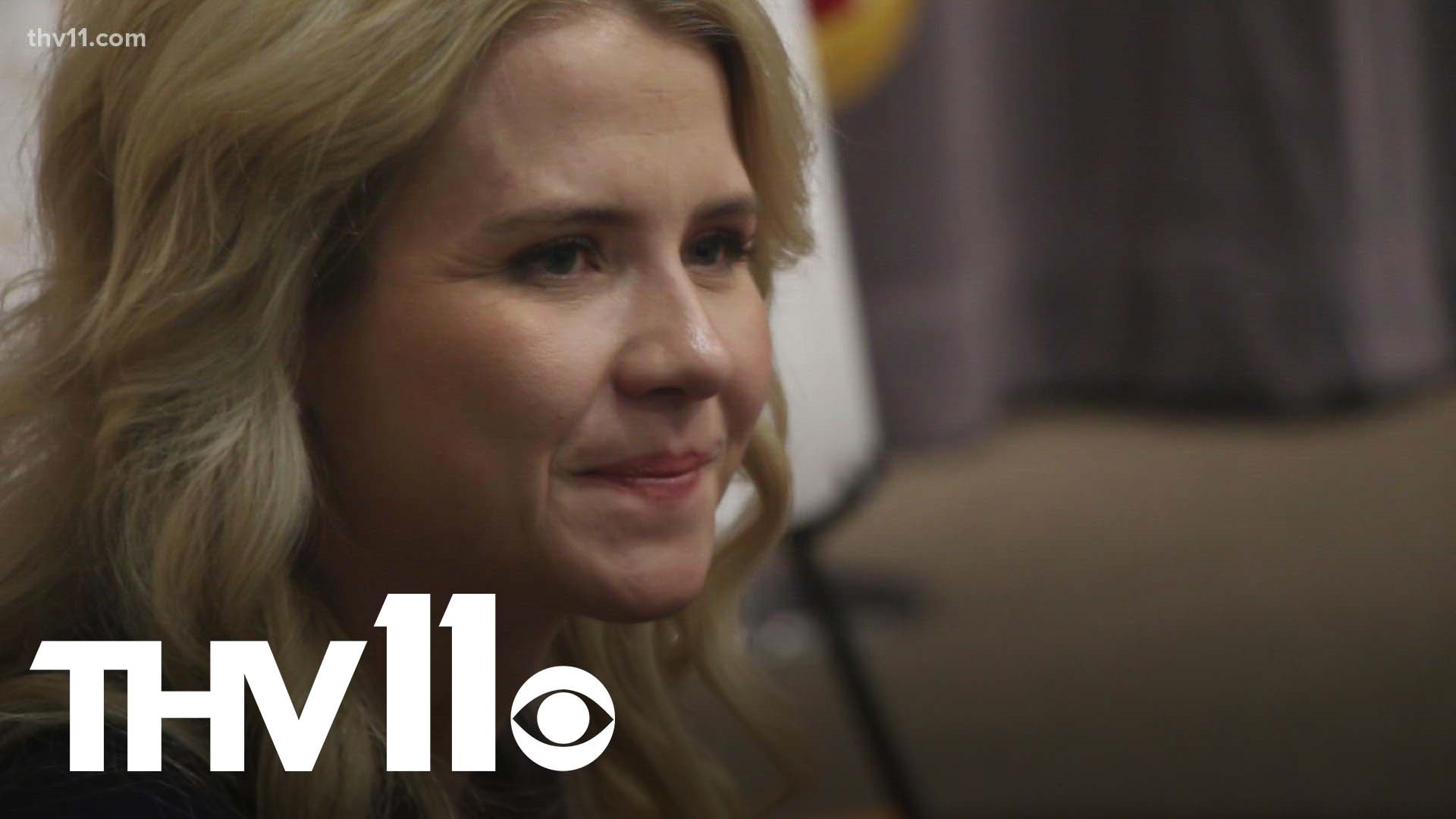NORTH LITTLE ROCK, Arkansas — Elizabeth Smart: It's a name many of you probably remember or one you probably recognize.
Her case was one of the most followed child abduction cases in the early 2000's.
Now, she's sharing her story. Smart spoke in North Little Rock to a crowd filled with civilians and National Guard members on Friday morning.
"I'm pretty sure a lot of people will always look at me and be like, 'that's the girl that was kidnapped.' That's okay, but it doesn't actually define you. The decisions that you make, define who you are," she said.
That's the message Smart wants other survivors to learn from the trauma she endured nearly 20 years ago.
"I was in the most innocent of situations that you could be in. I was at home, I was asleep. I was woken from my sleep and it still happened to me, so it doesn't matter what you're doing. It's never your fault," she said.
On June 5, 2002 Smart was abducted from her bed in the middle of the night and held hostage for nine months.
Only 14 years old at the time, Smart was subject to starvation, sexual abuse, and assault daily.
As she shared her story to a room full of Arkansas National Guard members, Smart said she constantly wondered, 'Why did this happen to me?'
"It just felt surreal. I mean, it couldn't be real. I wasn't a bad kid, I wasn't a bad person," she said.
March 12, 2003 was the day everything changed-- after months of abuse, police found Smart and she was finally able to go home.
Wanting to just be the innocent teenager she was before, Smart said she swore she'd never write a book or speak about this time of her life.
"It took me a long time to accept that I probably would never be able to go back and that I needed to accept that my life was going to be different," she said.
It wasn't until Smart spoke to other survivors that she realized her story needed to be told.
Now, years later, she's written two books. She has also started her own foundation and worked with the Department of Justice, encouraging people who have similar stories and helping them understand there is hope.
"I want them to know that they're special and I want them to know that whatever happened to them cannot detract from their value as a human being. That they were born with value, they were born with worth, and that it doesn't matter what anybody else does to them. No one can take that away from them," Smart said.
You can find several resources on the website for the Elizabeth Smart Foundation. Those resources detail how to recognize signs of abuse, human trafficking, and the importance of talking about these topics with your children at an early age.
That's something that Smart is practicing as she said she's already had some of these conversations with her three kids.

